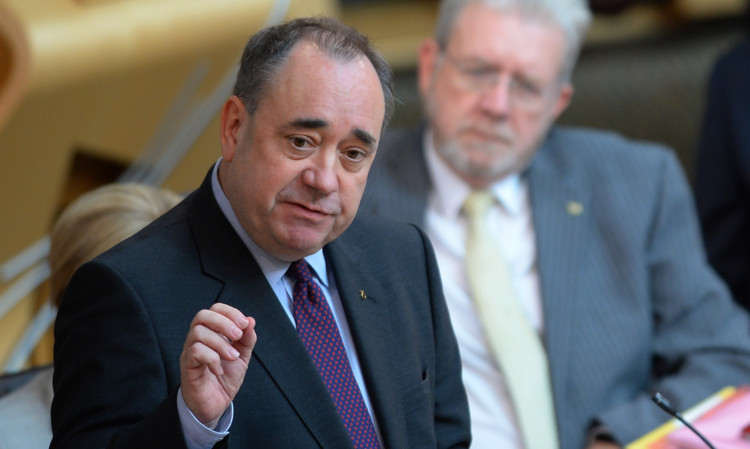
Alex Salmond has been accused of using “secret” deals to try to hide how much public money is being spent on the case for independence.
The Sunday Post has obtained details of contracts worth more than £70,000 signed with consultants working on the defence sections of the forthcoming referendum White Paper.
Scottish Government contracts are normally put out to public tender but these deals were done in private using a procurement loophole meant for “exceptional circumstances”. This meant the amount of money spent and identity of the experts hired stayed under wraps until SNP ministers were forced to release the details following a freedom of information request by this paper.
A breakdown of the deals shows one of the British Army’s former most senior officers in Scotland, retired Major General David Shaw, is helping ministers develop plans for defence and security forces in a newly independent country.
The contract revelations come after the First Minister was last week criticised for charging the taxpayer more than £250 for a pair of tartan trews before waging a campaign to keep secret his failure to immediately refund the public purse.
The Scottish Government last night insisted it had done nothing wrong, claiming business needs outweighed the need for competition.
But Paul Martin, Scottish Labour’s business manager, said: “Whether it is trips to the Ryder Cup or Tartan trews, Alex Salmond loves throwing about public money and then goes to extraordinary lengths to cover it up.
“Clearly money is no object in the pursuit of his dream of breaking up the United Kingdom and the secretive way the government has went about this contract will leave people wondering what they have to hide.
Documents released by the Scottish Government show it has signed two deals with Cranfield University over the last 18 months’ worth a total of £46,236 for reviews of the “defence and security landscape”.
SNP minsters also signed a £31,000 deal with Aberdeen-based consultancy firm Unicorn ARC in September last year for the “development of options for defence and security capabilities and functions”.
Unicorn ARC is owned by Matthew Anderson, a Sandhurst-educated former Officer in the British Army and David Shaw, a former Major General and Governor of Edinburgh Castle.
The Scottish Government had intended to withhold the identity of these experts, claiming naming them would have a “significantly disruptive effect” on its ability to carry out constitutional work.
However, a blunder by officials saw them mistakenly release the information to The Sunday Post. Officials initially asked The Sunday Post not to name the experts, claiming it would compromise these organisation’s interests and hinder on-going dialogue, but later changed their mind.
It is Scottish Government policy that any goods or services it buys must be “bought by genuine and effective competition”.
The only way round this is for a so-called Non Competitive Action (NCA) which is only granted in “exceptional circumstances” and situations where competition is not deemed appropriate.
For example, more than £300,000 was spent on a NCA deal with advertising firm the Leith Agency during the severe winter of 2010 for a communications campaign warning householders about the dangers of burst pipes.
But more than £30 million has now been spent using the NCA route in the last four years.
This includes £20,000 for a psychological testing firm used in a recruitment round for senior civil servants and more than £500,000 on PR contracts.
A Scottish Government spokesman said: “We are grateful to Unicorn ARC and Canfield University for providing the Scottish Government with such highly detailed and expert advice.
“The people of Scotland expect us to make appropriate preparations for our future defence and security with independence and, by seeking analysis from these highly regarded organisations, that is exactly what we have done. This work will inform our defence proposals which will be included in the Scottish Government’s white paper due to be launched next month.”

Enjoy the convenience of having The Sunday Post delivered as a digital ePaper straight to your smartphone, tablet or computer.
Subscribe for only £5.49 a month and enjoy all the benefits of the printed paper as a digital replica.
Subscribe